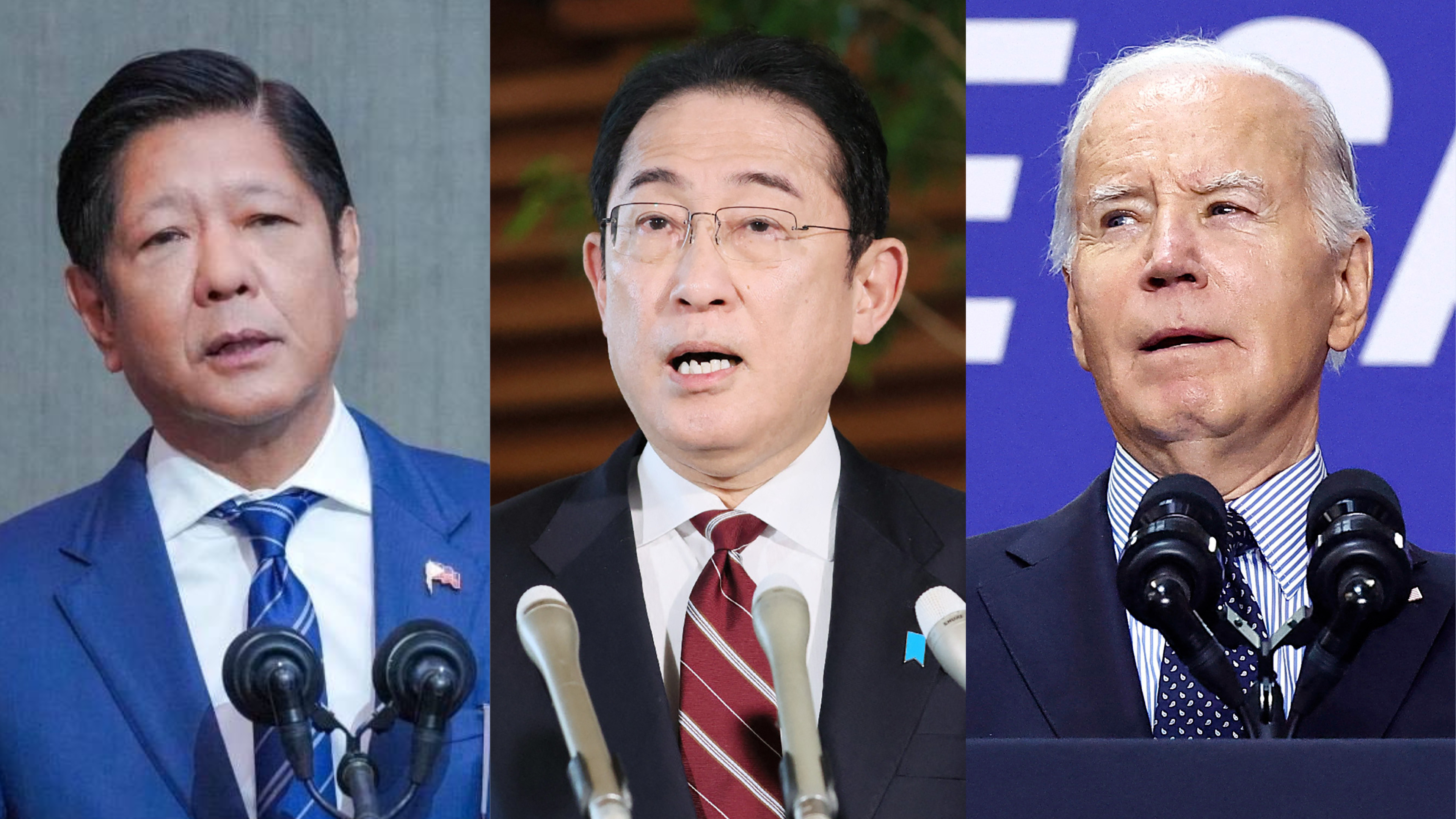Marcos departs for trilateral meet, vows to boost ties with Japan, US

From left to right: President Ferdinand Marcos, Jr., Prime Minister Fumio Kishida, and President Joe Biden. | PHOTOS: Official facebook page of Bongbong Marcos, AFP
MANILA, Philippines — President Ferdinand “Bongbong” Marcos Jr. said on Wednesday that he will underscore the enhancement of economic cooperation and explore ways to advance partnerships in infrastructure, semiconductors, and digitalization, among others, in his trilateral meeting with the United States and Japan in Washington, DC.
In his speech before he departs for the US at the Villamor Air Base in Pasay City, Marcos said he will also discuss ways to advance cooperation on cybersecurity, critical minerals, renewable energy, and defense and maritime.
READ: Marcos says Philippines has no interest on attacking anyone
Marcos left the country at 2:56 p.m. on Wednesday to take part in the first-ever trilateral meeting between the Philippines, the US, and Japan.
He is set to arrive in Washington, DC, around 8 p.m. on Thursday (US time).
“It is my intention also to exchange views with my US and Japanese counterparts on various regional security issues of mutual concern while continuing to reiterate the importance of upholding the rule of law and preserving the rules-based international order in the Indo-Pacific region,” said Marcos in his speech.
READ: DFA exec says PH-Japan-US meet aims to boost peace in Indo-Pacific
Marcos is also set to have a bilateral meeting with US President Joe Biden, and the foreign leader might likewise have a one-on-one meeting with Japanese Prime Minister Fumio Kishida.
Moreover, the President said he will also meet with American business leaders to encourage them to invest in the Philippines.
“It is mainly an agreement to strengthen the cooperation on the economic front. Of course, security and defense is going to be part of that discussion but nonetheless, I think I can assure everyone that that is not the main intent of this trilateral agreement,” Marcos added.
“The main intent of this trilateral agreement is for us to be able to continue to flourish, to be able to help one another, and of course, to keep the South China Sea as a freedom—to keep the peace in the South China Sea and the freedom of navigation in the South China Sea,” he continued.